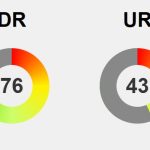Virgos are celebrated for their precision, practicality, and relentless pursuit of perfection, yet this very drive can erect emotional barriers that hinder genuine connection. Does their quest for flawlessness prevent them from embracing imperfections and opening their hearts? This exploration reveals how Virgo’s perfectionism, rooted in ancient symbolism and reinforced by cultural standards, often leads to self-criticism and emotional reserve. Despite their reliability and meticulous nature, many Virgos struggle with vulnerability, viewing it as a weakness rather than strength. However, modern insights highlight that balancing high standards with self-compassion and vulnerability can foster deeper relationships and personal growth. As societal attitudes shift toward authenticity and mental wellness, Virgos are increasingly empowered to reframe their perfectionist tendencies, turning self-acceptance into a vital tool for authentic connection. Could embracing imperfection be the key to unlocking their true potential—and a more fulfilling life?
Unveiling Virgo: Perfectionism and Emotional Barriers
Virgo, born between August 23 and September 22, is often associated with qualities like practicality, attention to detail, and a sharp analytical mind. These earth signs are reliable, organized, and driven by a desire to improve their surroundings and themselves. A defining trait of Virgos is their perfectionism—a deep-rooted need to get things just right. This drive pushes them toward excellence in their careers and personal pursuits, but it also creates challenges, especially when it comes to emotional openness.
Perfectionism in Virgos isn’t just about high standards; it’s about a relentless need for control and flawlessness. They tend to hold themselves to impossible expectations, often criticizing even minor mistakes. This tendency can lead to a cycle of self-criticism that erodes confidence and fosters feelings of inadequacy. Because of this, Virgos often focus more on their perceived flaws than on their strengths, making it difficult to accept imperfections—whether in themselves or others.
This perfectionist streak influences how Virgos handle their emotions. Many prefer to maintain a composed and orderly exterior, viewing vulnerability as a weakness or a potential failure. Admitting feelings or showing vulnerability can feel like losing control, clashing with their natural desire for precision and stability. As a result, they tend to hold back their true emotions, creating a barrier that can be hard to break down.
Their analytical minds, while excellent for problem-solving and organization, often turn inward. Virgos may obsess over their flaws or mistakes, spiraling into doubt and self-criticism. This inward focus makes it harder to be open about their emotional struggles, as they fear judgment or rejection. The high standards they set for themselves and their environment can make emotional vulnerability seem like an additional flaw rather than a natural part of human experience.
Despite these challenges, Virgo’s perfectionism isn’t inherently negative. It drives many to achieve great things and uphold high standards in their work and relationships. Recognizing that perfection isn’t attainable—and learning to embrace imperfection—are vital steps toward emotional growth. By accepting their flaws and vulnerabilities, Virgos can foster deeper connections and develop a more authentic sense of self.
Understanding these traits helps shed light on why Virgos often struggle with emotional openness. Their drive for order and perfection can act as a shield, protecting them from vulnerability’s risks but also preventing genuine connection. Embracing imperfection isn’t easy for them, but it’s a crucial part of their journey toward emotional resilience and authenticity.
Roots of Virgo: Mythology, Agriculture, and Ancient Symbols
Virgo’s symbolism runs deep, rooted in ancient stories and agricultural traditions that have shaped its meaning over centuries. In astrology, Virgo is represented by the Virgin, embodying purity, service, and a meticulous attention to detail. This constellation has long been associated with qualities like practicality, precision, and a desire to refine and improve. Its origins trace back to times when the harvest season marked a period of gathering and preparation, emphasizing traits like orderliness and diligent work.
In Greek mythology, Virgo is often linked to Demeter, the goddess of harvest and fertility. Demeter’s nurturing qualities highlight themes of growth, protection, and the cyclical nature of life—traits that resonate with Virgo’s focus on care and refinement. The constellation’s connection to the harvest season underscores a need to gather, organize, and prepare, aligning with Virgo’s natural drive for meticulousness and service. These mythological and agricultural symbols have helped shape the perception of Virgo as a sign concerned with cleanliness, order, and a strong work ethic.
Throughout history, societies emphasized Virgo’s ties to the earth’s cycles, especially during harvest time. The imagery of collecting crops and preparing for winter reflects core Virgo traits—productivity, attention to detail, and careful planning. These themes have persisted through ages, influencing how people view Virgo’s high standards and critical eye. The symbol of the Virgin, representing purity and dedicated service, reinforces Virgo’s association with striving for perfection and continuous self-improvement.
As astrology evolved from Hellenistic Greece onward, Virgo’s traits became more closely linked to clarity, discipline, and a relentless pursuit of flawlessness. These qualities mirror ancient values of order and efficiency, which continue to influence modern interpretations. Over time, the archetype of the Virgin shifted into one of meticulous service and self-betterment—traits that remain central to Virgo’s identity today. Recognizing these roots offers insight into why perfectionism is so ingrained in Virgo’s nature and how it shapes their worldview.
Cultural influences further cement Virgo’s reputation for high standards. Societies that prize achievement, order, and cleanliness tend to reinforce Virgo’s natural inclinations. This cultural backdrop, combined with mythological symbolism and agricultural practices, forms a powerful framework that influences how Virgos see themselves and their goals. Their drive for order and excellence is not just personal but deeply embedded in a long-standing tradition of care, discipline, and refinement, shaping their approach to life and growth.
Modern Insights: Navigating Virgo’s High Standards and Emotional Reserve
Modern perspectives on Virgo traits reveal a more nuanced view of their perfectionism and emotional reserve. Many psychologists and astrologers see Virgo’s high standards as both a strength and a potential barrier. Their relentless drive for excellence often results in dependable, impressive accomplishments, but it can also foster hesitation when it comes to emotional vulnerability. Virgos tend to be highly self-critical, which can lead to feelings of inadequacy and make opening up feel like a risk they’re not willing to take.
Today, there’s a growing understanding that Virgo’s perfectionist tendencies stem from a desire for control and order. Ruled by Mercury, they analyze life meticulously, obsessing over details and flaws. This focus inward can fuel self-doubt, causing them to overlook their strengths and hesitate to share their true feelings. As a result, emotional distance often develops, and vulnerability seems more like a weakness than a pathway to connection. Recognizing this pattern opens the door to seeing their perfectionism as a sign of deep care and high standards rather than simply a flaw.
Many now view these traits as opportunities for growth. When managed thoughtfully, Virgo’s perfectionism can motivate resilience and self-awareness. Embracing imperfection becomes a vital step toward authentic connection. Instead of fearing vulnerability, Virgos are encouraged to see it as a strength—an act of honesty that deepens relationships and fosters understanding. Shifting their perspective allows them to realize that expressing emotion doesn’t diminish their integrity; it enriches their life with genuine bonds.
In everyday life, this perfectionist streak manifests in careful routines, thorough planning, and high standards for themselves and those around them. While these habits promote reliability, they can also lead to overanalyzing and frustration. Recognizing that emotional honesty is a human trait, not a flaw, is key to overcoming these tendencies. When Virgos learn to accept their imperfections and share their feelings, they open the door to deeper self-acceptance and meaningful connections.
Overall, today’s understanding emphasizes that Virgo’s perfectionism and emotional reserve are flexible qualities. With awareness and deliberate effort, Virgos can learn to embrace vulnerability without losing their sense of control. This balance between practical wisdom and emotional openness enriches their relationships and nurtures a more authentic self. Moving from a rigid pursuit of flawlessness toward compassionate self-acceptance allows them to grow both personally and relationally, unlocking new levels of fulfillment and connection.
For those interested in exploring more about how astrology can support personal growth, learning about the unique qualities of Virgo can be especially insightful. Understanding how Virgo’s traits influence their behavior and relationships can foster greater self-awareness and compassion. To deepen this understanding, you might find it helpful to read about Virgo traits and strengths, which offers valuable insights into embracing their high standards and emotional depth.
Transforming Perfectionism: Practical Strategies for Emotional Freedom
Balancing perfectionism with emotional openness starts with shifting how Virgos see themselves. Instead of viewing flaws as failures, they can learn to see mistakes and imperfections as natural steps in growth. Practicing self-compassion—being kind to oneself in moments of error—helps loosen the grip of perfectionist tendencies. When Virgos start speaking to themselves with understanding, it becomes easier to extend that kindness outward, creating space for vulnerability without fear of judgment.
Mindfulness techniques also serve as powerful tools. Taking a moment to pause, breathe, and observe feelings without trying to fix or judge them allows Virgos to become more aware of their emotional states. Journaling offers a safe outlet for expressing feelings they might suppress, making vulnerability feel more familiar and less threatening. Over time, increased awareness helps them recognize when their inner critic is active, giving them the chance to choose a more accepting response.
Redefining success by setting realistic goals plays a crucial role. Instead of fixating on flawlessness, Virgos can focus on progress and effort. Sharing small feelings—like admitting they’re anxious or unsure—with trusted friends creates opportunities to practice vulnerability and build confidence. These small acts act as stepping stones, showing that openness doesn’t weaken their stability but enriches their connections.
Creating a supportive environment is equally vital. Connecting with people who value honesty and authenticity encourages Virgos to open up more. Having a safe space to express feelings without criticism helps them see vulnerability as a strength, not a weakness. Over time, this supportive network reinforces the idea that embracing imperfections deepens relationships and fosters genuine self-acceptance.
Reframing failure is perhaps the most transformative step. Instead of viewing mistakes as setbacks, Virgos can see them as valuable lessons. Embracing this mindset makes vulnerability less intimidating and more natural. Recognizing that imperfection is part of being human allows Virgos to relinquish some control, paving the way for a more authentic, emotionally open self.
Integrating practices like journaling, meditation, or small acts of sharing into daily routines can gradually dismantle emotional barriers. These structured yet flexible approaches help turn vulnerability into a habit, not a rare event. Their innate discipline combined with a desire to grow positions Virgos uniquely to balance their drive for excellence with compassion for themselves and others.
Ultimately, embracing their imperfections and practicing vulnerability enriches Virgos’ relationships and deepens their self-understanding. This shift from rigid control to gentle acceptance doesn’t diminish their practicality; it enhances it, allowing their wisdom to be more human and relatable. Moving toward emotional openness isn’t about abandoning standards but about integrating authenticity into their pursuit of growth, leading to a fuller, more connected life.
Looking Forward: Embracing Vulnerability and Growth in Virgo’s Future
Looking ahead, Virgo’s traits are set to evolve as society increasingly values authenticity and emotional honesty. The growing acceptance of mental health awareness and self-acceptance creates a supportive environment for Virgos to move beyond their perfectionist tendencies. This shift encourages them to see vulnerability not as a weakness but as a vital tool for building meaningful connections and fostering personal growth.
Advances in self-development practices, like mindfulness and emotional intelligence, offer practical avenues for Virgos to better understand and manage their feelings. These tools help them develop resilience and learn to accept imperfections without losing their sense of control. As access to mental health resources expands, Virgos can find safe spaces to practice vulnerability, gradually dismantling emotional barriers built by years of high standards.
Social media and online communities play a role in normalizing mistakes and celebrating authenticity. Sharing their journeys, struggles, and small victories publicly helps Virgos see that imperfection is part of the human experience. This visibility reduces shame and builds confidence, making vulnerability feel less risky and more rewarding. As they observe others embracing their flaws, Virgos may become more comfortable exposing their true selves.
New forms of therapy and coaching tailored specifically to Virgo’s tendencies are also emerging. These approaches focus on reframing perfectionism as a growth opportunity rather than a flaw. With guidance, Virgos can develop healthier perspectives on failure and imperfection, turning their analytical skills into assets for authentic self-expression. Over time, this mindset shift fosters emotional resilience and a more balanced view of success.
As they integrate routines like journaling, meditation, or small acts of sharing into daily life, Virgos can reinforce their journey toward vulnerability. Their natural discipline makes these practices accessible and sustainable, creating habits that gradually dissolve emotional barriers. With ongoing effort, they can transform their drive for perfection into a foundation for genuine self-awareness and deeper relationships, embracing imperfections as integral to a fulfilling, human life.





